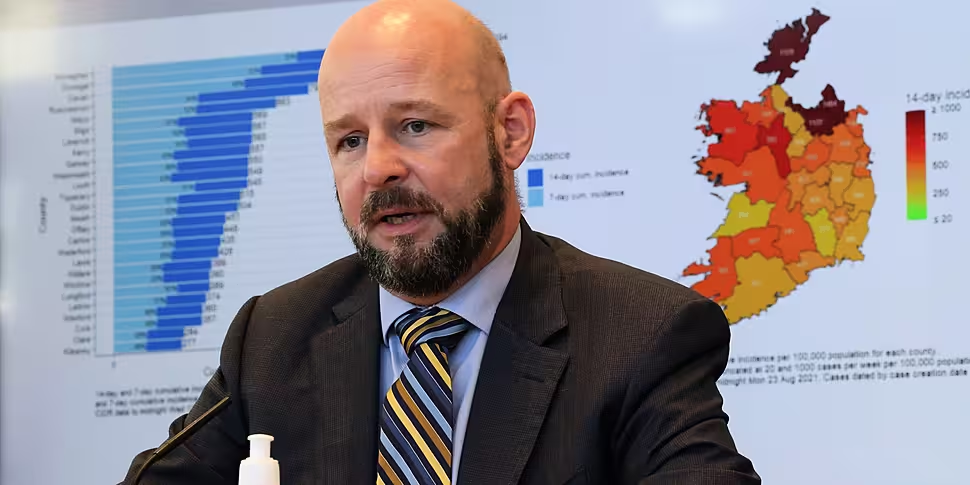It's highly unlikely most or all school children will get COVID-19 in the coming months, NPHET's Professor Philip Nolan says.
It's after concerns were raised most under 12s who are unvaccinated could get it due to a lack of mask-wearing and proper ventilation.
An estimated 12,000 children are temporarily out of school as close contacts of someone with the virus.
The HSE says around 45% of testing in the past week has been in the 0-18 age group, while no vaccines have been approved for children under 12.
However, Professor Nolan - chair of NPHET's modelling group - says the worst-case scenario isn't likely as the average reproduction number in schools is less than one.
In a series of tweets, he said recent commentary has been based on an "uncritical reading" of a recent modelling study.
A lot of commentary saying that most or all schoolchildren will be infected with SARS-CoV-2 in the coming months, based on an uncritical reading of this modelling study. It is highly unlikely that the scenario modelled will happen in the real world. 1/12https://t.co/AlMbCNWgK8 pic.twitter.com/tNrQtZfEQh
— Professor Philip Nolan (@PhilipNolan_SFI) September 12, 2021
He said: "It’s not plausible. In the 12 weeks after primary schools reopened in March 2021 we detected 5,279 cases in children aged 5-12 years, or just under 1% of the population. The vast majority of these infections were transmitted in the community, not in school.
"Even if delta is 50% more transmissible than alpha, it’s a long way from 1% of the population to 50-75% of the population becoming infected in 12 weeks; note also that most transmission was in the community, and the majority of the community is now vaccinated."
Professor Nolan said the assumptions in the model are "very different" from the real-world experience, and doesn't reflect the mitigation measures in place when a child does test positive.
He also suggested the majority of infected children "infect no other children in school", with only a small number transmitting to more than one other child.
However, he said it is "prudent to be conservative in isolating close contacts until we are assured in-school transmission remains low with delta".
Professor Nolan concluded: "The bottom line: the way to protect children is for adolescents and adults to do everything they can to limit transmission and reduce incidence…get vaccinated, and continue the basic measures".









